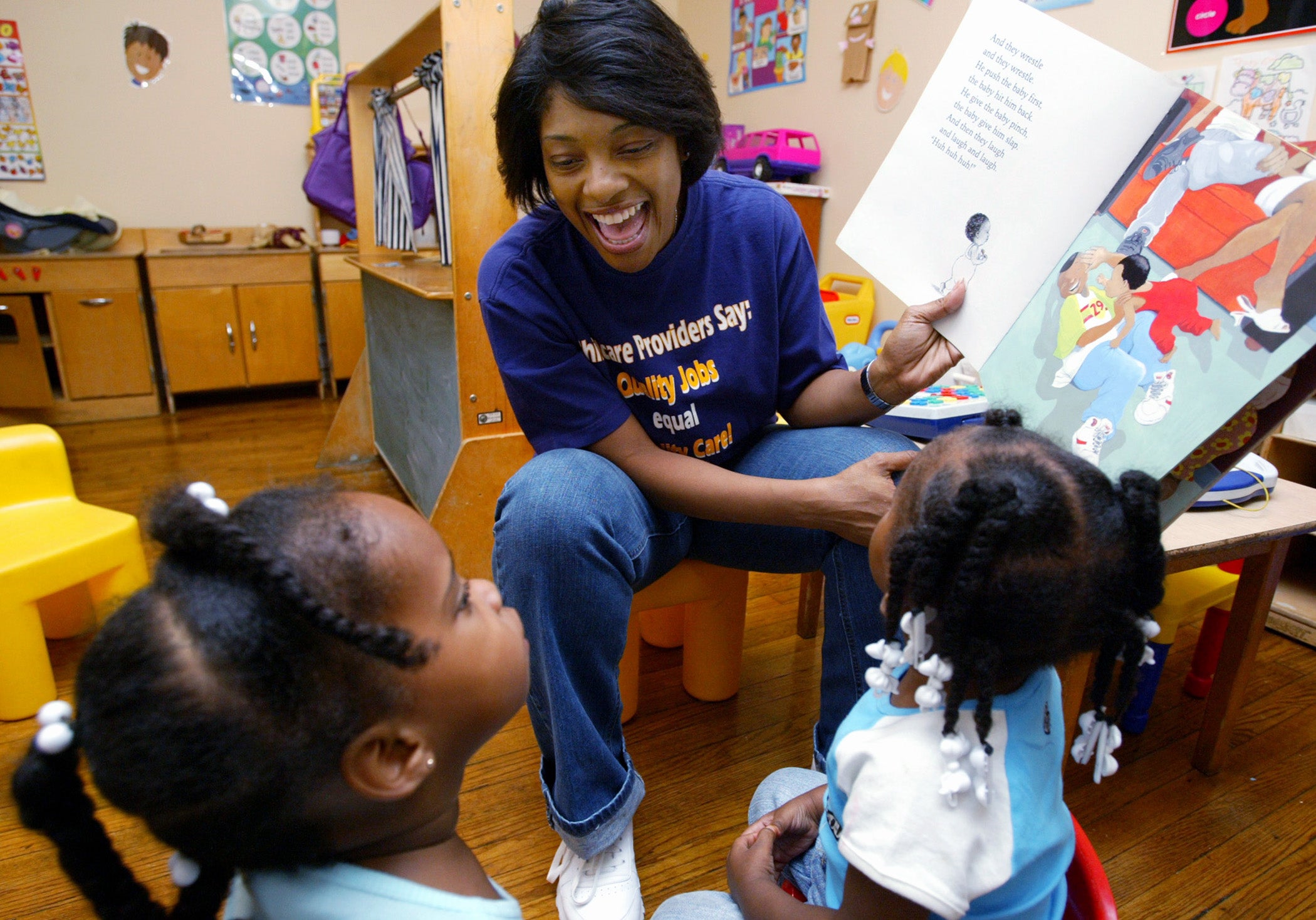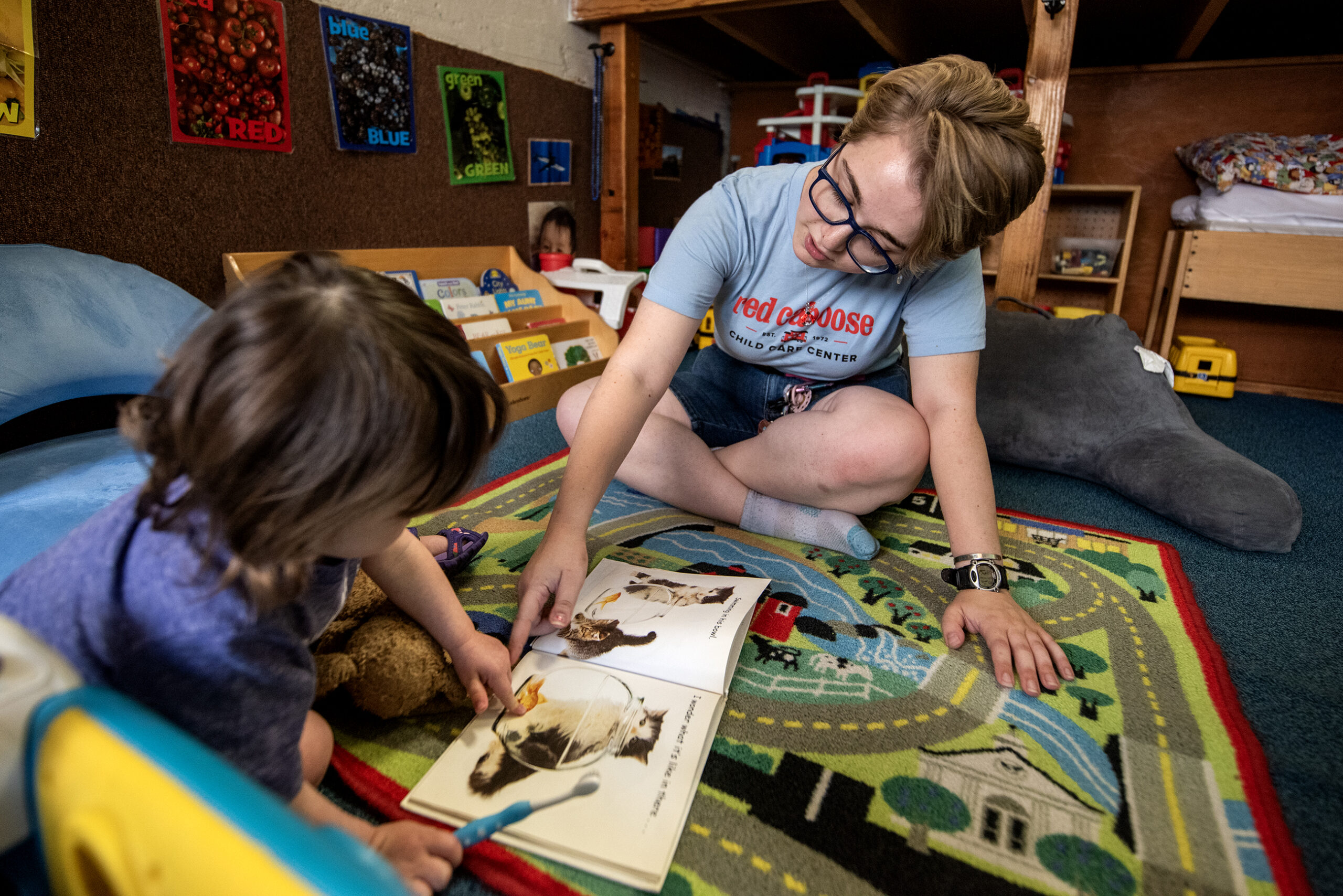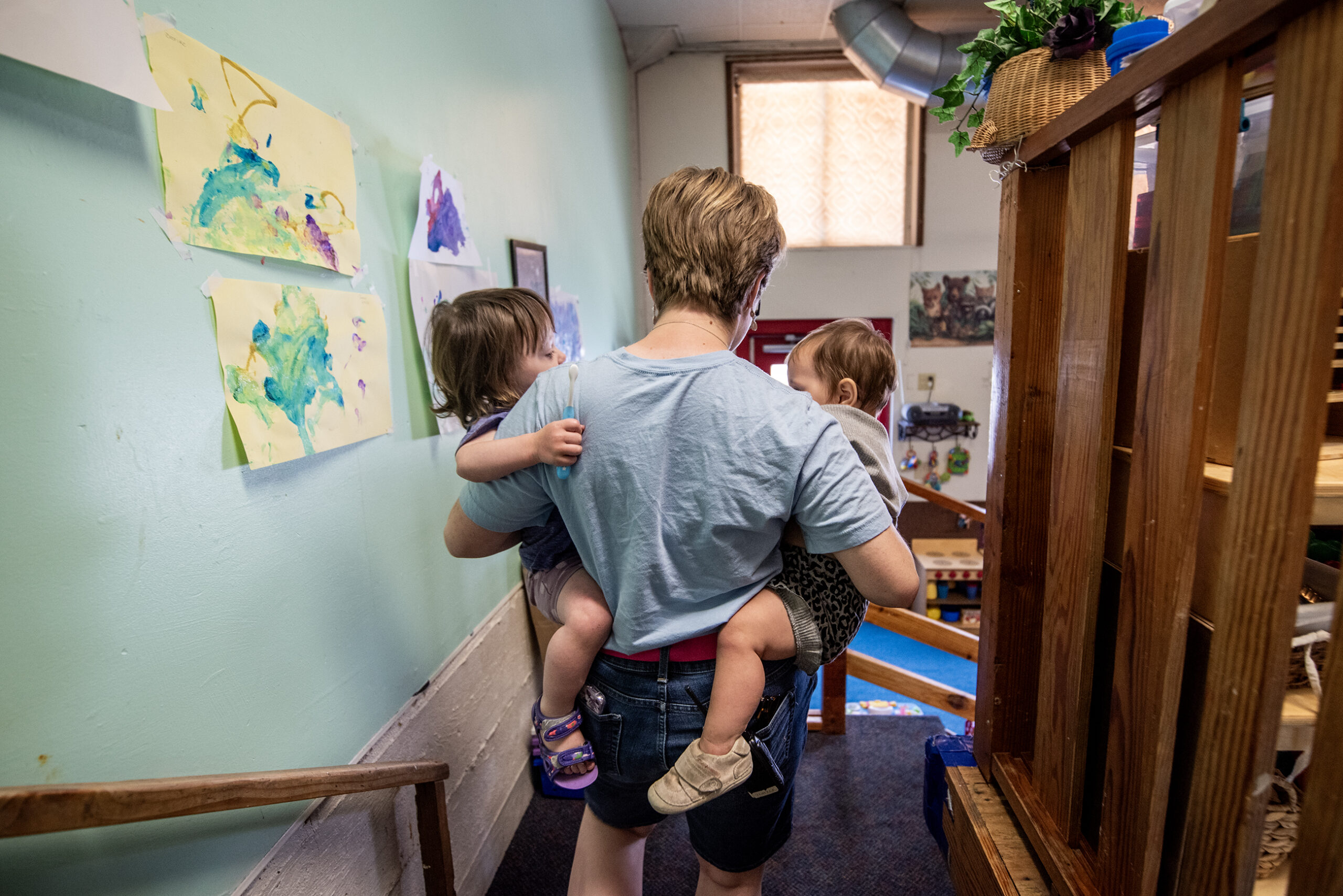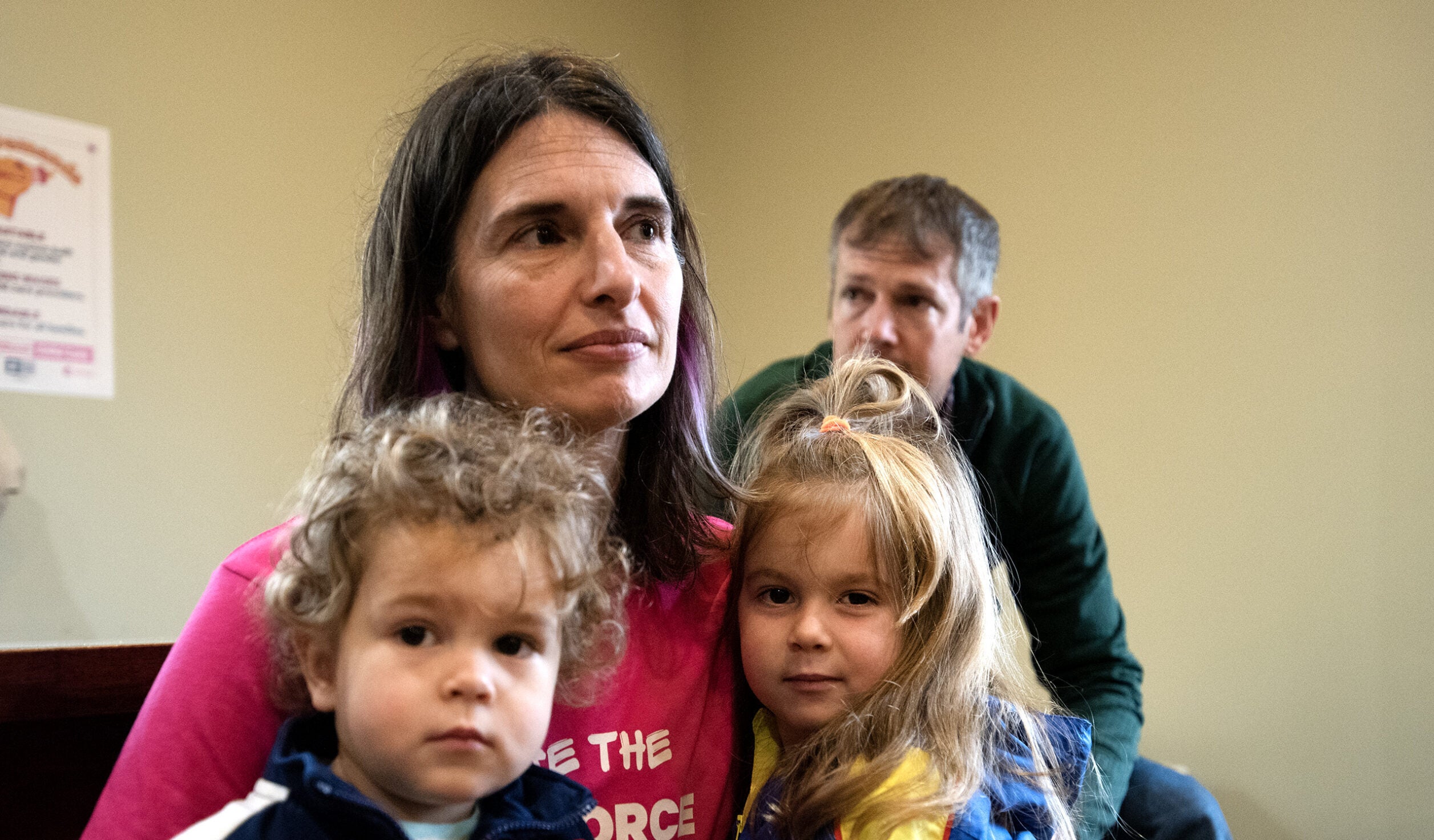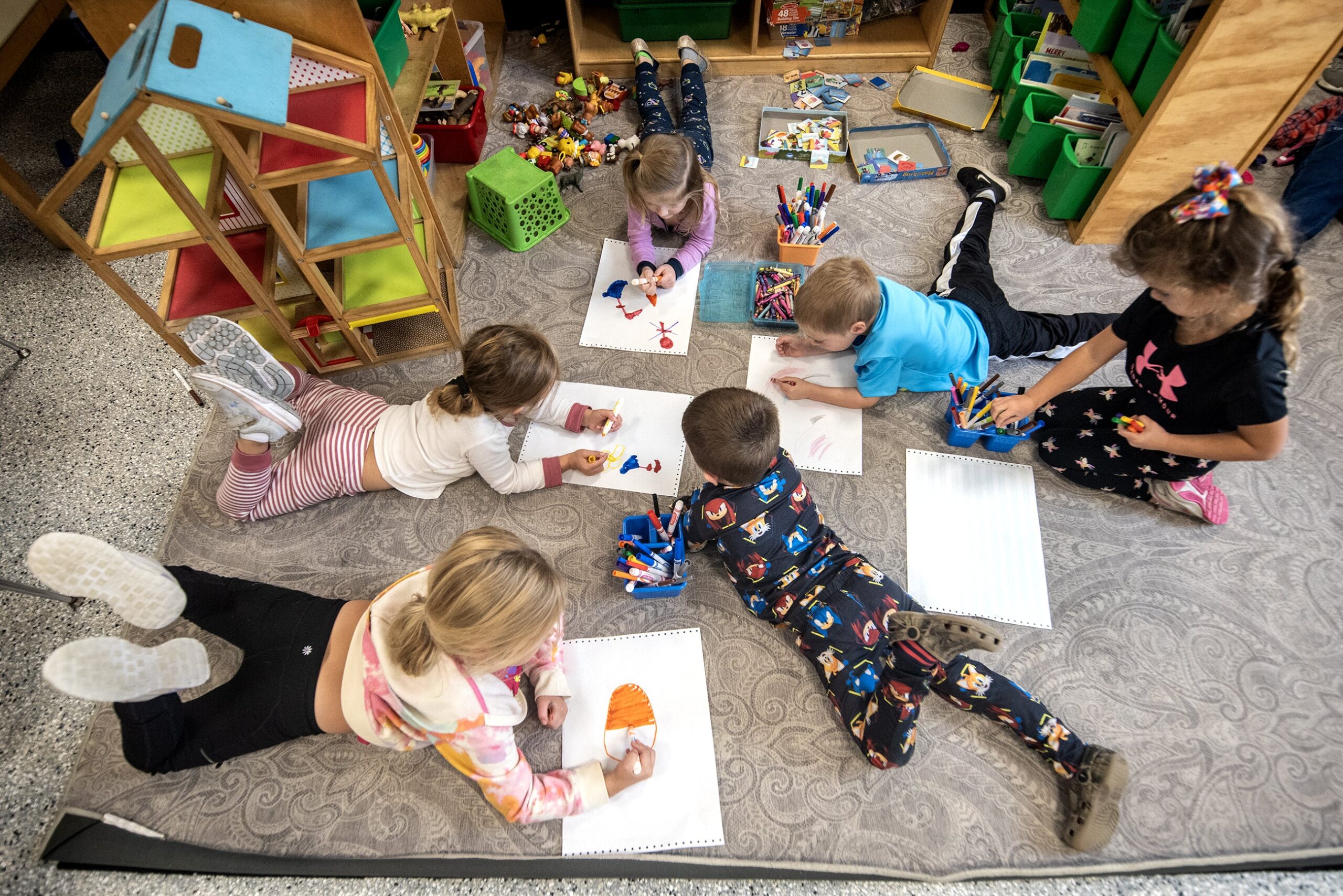A new initiative from a coalition of child care providers, businesses and early learning experts is calling for the state to put more money and resources into child care and early education.
The Wisconsin Early Childhood Association’s “Raising Wisconsin” platform is advocating for increased state funding for families, providers and child care workers to help stabilize an industry where pay is low, margins are thin and, in the pandemic, health risks were high.
“The child care sector has long been financially strained by razor-thin margins that do not allow us to offer the compensation our staff deserves for their incredibly important work,” said Rafat Arain, owner of the Crescent Learning Center in Milwaukee. “That is why it is so important to have a unified voice on behalf of the early care and education advocacy effort.”
Stay informed on the latest news
Sign up for WPR’s email newsletter.
The group is asking for the state to invest in a number of different programs, including:
- Financial assistance to help more child care providers get started.
- Scholarships and salary stipends to help recruit and retain child care workers.
- Expanded access to the Wisconsin Shares program that helps cover families’ child care costs and increases to its reimbursement rates.
- Tax credits for businesses that have employer-sponsored child care.
Wisconsin families spend thousands of dollars per year on child care — if they can find a provider.
Amber Edwards, the mother of a 6-year-old in Green Bay, said she used to work in the service industry, but had too much trouble finding care providers who could watch her daughter during her often late-night or unpredictable shifts. She switched to an office job, in the hope that more regular hours would make child care easier, but said she still ran into obstacles.
“If we don’t support parents with affordable, accessible and high quality child care, businesses don’t have workers,” she said. “It’s frustrating to hear messages out there that imply, or directly say, that people just don’t want to work. We do want to work, we just need to have child care options to ensure that we can.”
The Wisconsin Department of Children and Families disbursed hundreds of millions of dollars in federal pandemic relief funds to child care providers so they could cover some of their losses from families staying home during the pandemic and offer hiring bonuses and pay raises, though some said they lost out on payments because of missing paperwork.
However, the added stresses of the pandemic on the child care system have prompted the state and local government to focus on solutions to make child care more affordable for families and more sustainable for providers and their workers. The city of Superior is offering $200,000 in forgivable loans to set up, expand or relocate licensed child care providers. Using its federal relief funds, Wisconsin DCF put money into child care subsidies and higher education scholarships for child care workers.
The Wisconsin Early Childhood Association said it’s hoping to build on that momentum, using Raising Wisconsin to gather support to extend and expand those initiatives.
“Lifting up the experiences of Wisconsin’s families and communities is how we ensure this work is centered in policy and solutions that are responsive to their needs as we work to close disparities across the state,” said Jackie Anderson, project manager of Raising Wisconsin.
Wisconsin Public Radio, © Copyright 2025, Board of Regents of the University of Wisconsin System and Wisconsin Educational Communications Board.
